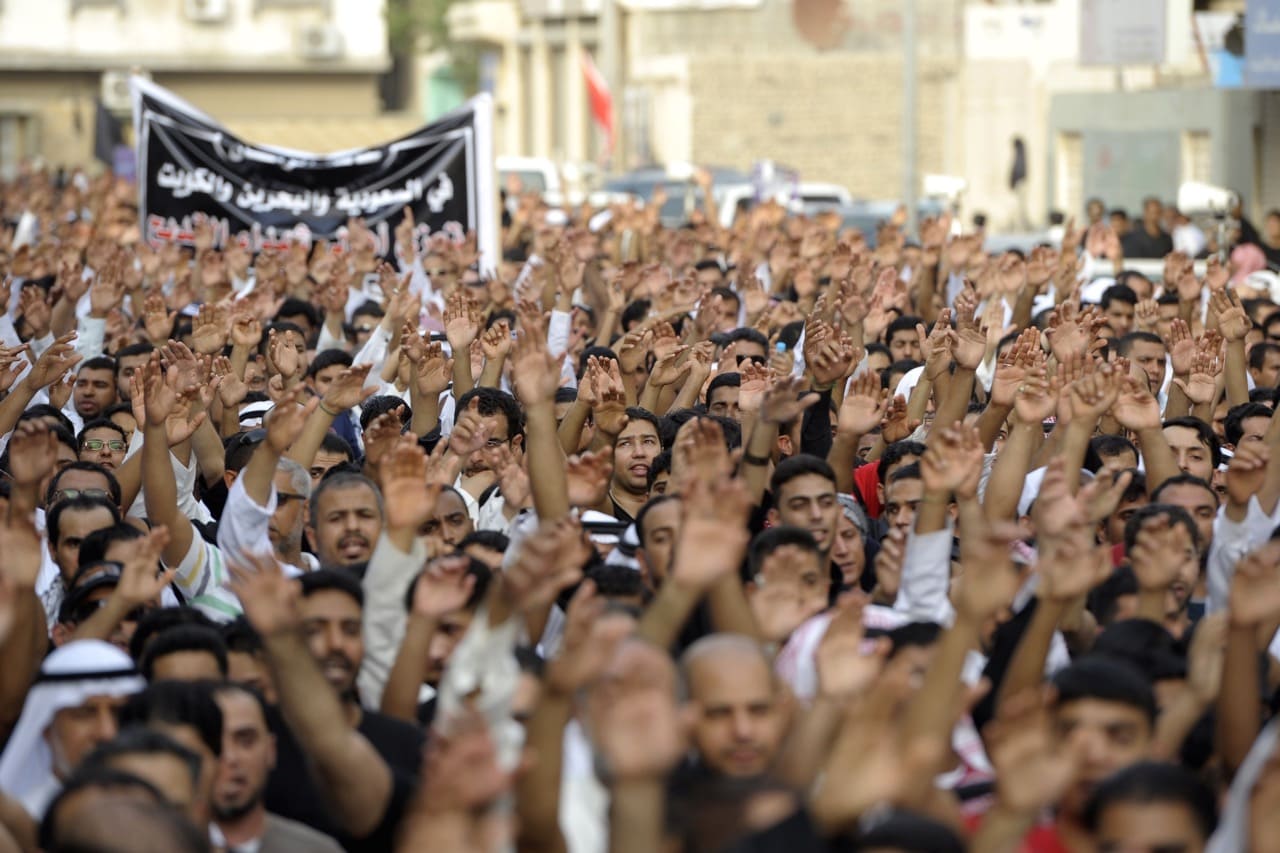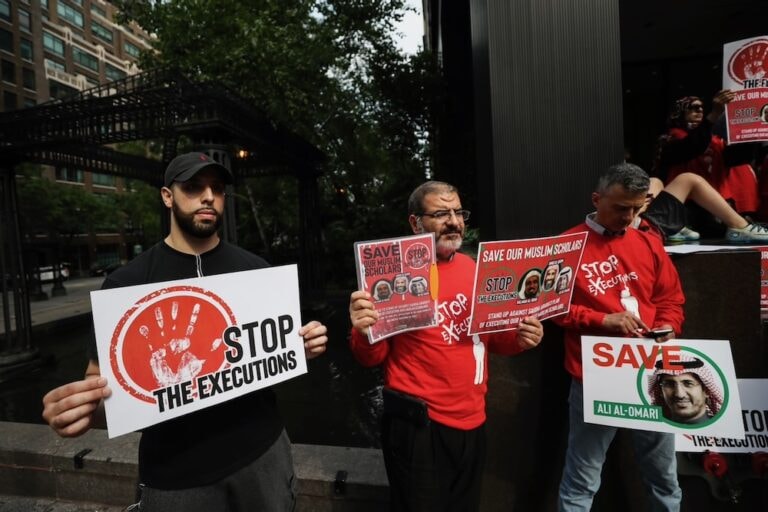Al-Ghomgham remains in the General Intelligence Prison in Al-Dammam where she has been for the past three years.
This statement was originally published on gc4hr.org on 28 October 2018.
According to reports received by the Gulf Centre for Human Rights (GCHR), human rights defender Israa Al-Ghomgham was not brought to court for the second hearing of her case in front of the Specialised Criminal Court (SCC) on 28 October 2018. She remains in the General Intelligence Prison in Al-Dammam where she has been kept since her arrest on 6 December 2015. The judge adjourned the hearing to 21 November 2018.
The case has generated a lot of interest internationally because Al-Ghomgham is facing execution, which is uncommon for women. As well, many women’s rights defenders are in prison for exercising their rights to freedom of expression, and an international uproar continues over the murder of Saudi journalist Jamal Khashoggi in the Saudi Consulate in Istanbul on 2 October 2018.
On 6 December 2015, the security forced raided the house of Al-Ghomgham, now 29 years old, and arrested her with her husband, activist Mousa Al-Hashim. The two participated in peaceful protests in Al-Qatif that took place as demonstrations spread across the Middle East during the so-called Arab Spring beginning in 2011.
On 6 August 2018, after 32 months, the first hearing of Al-Ghomgham’s trial started before the SCC, which was created in 2008 to deal with terrorism cases but instead has been misused to target human rights defenders and other activists. She attended the hearing without a lawyer.
During the first session of her trial, the Public Prosecution presented a list of eight main charges against Al-Ghomgham, including allegedly: “joining a terrorist entity aimed at creating chaos and unrest within the Kingdom,” “participating in marches and gatherings in the province of Al-Qatif and encouraging young people to go to those marches and gatherings in addition to photographing, documenting and publishing these gatherings through social networks sites,” “participating in the funeral of victims of security clashes with protesters,” “preparing, sending and storing material that would harm the public order and punishable under Article 6 of the Cybercrime Act of 2008,” “creating an account on social networking sites and using it to encourage rallies to riot and incite young people against the state and security forces in addition to publishing pictures and video clips of these rallies and marches about a number of victims of security clashes,” and “creating a channel on YouTube for the publication of video clips of victims of security clashes.”
The prosecution asked the court to sentence her to death by beheading and the SCC postponed the hearing to 28 October 2018.
GCHR calls on the authorities in Saudi Arabia to:
. Immediately and unconditionally release Israa Al-Ghomgham and Mousa Al-Hashim and ensure that the death sentence is not implemented in her case, nor in the cases of any other peaceful protestors; and
. Guarantee in all circumstances that all human rights defenders in Saudi Arabia, including women’s rights defenders, are able to carry out their legitimate human rights activities without fear of reprisal.
GCHR respectfully reminds you that the United Nations Declaration on the Right and Responsibility of Individuals,
Groups and Organs of Society to Promote and Protect Universally Recognized Human Rights and Fundamental Freedoms, adopted by consensus by the UN General Assembly on 9 December 1998, recognises the legitimacy of the activities of human rights defenders, their right to freedom of association and to carry out their activities without fear of reprisals. We would particularly draw your attention to Article 6 (b and c): “Everyone has the right, individually and in association with others: (b) As provided for in human rights and other applicable international instruments, freely to publish, impart or disseminate to others views, information and knowledge on all human rights and fundamental freedoms; (c) To study, discuss, form and hold opinions on the observance, both in law and in practice, of all human rights and fundamental freedoms and, through these and other appropriate means, to draw public attention to those matters” and to Article 12 (2): “The State shall take all necessary measures to ensure the protection by the competent authorities of everyone, individually and in association with others, against any violence, threats, retaliation, de facto or de jure adverse discrimination, pressure or any other arbitrary action as a consequence of his or her legitimate exercise of the rights referred to in the present Declaration.”



